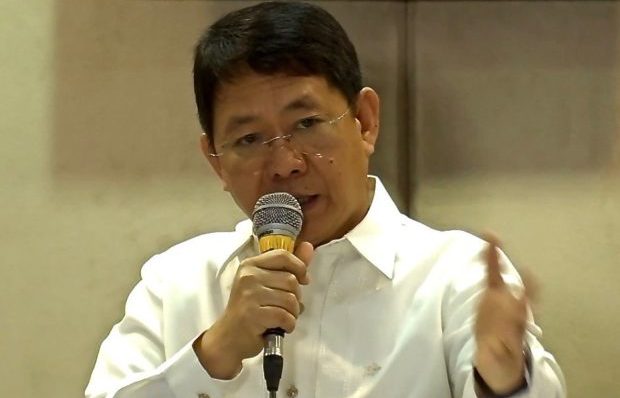
Interior Secretary Eduardo Año (File photo by NOY MORCOSO / INQUIRER.net)
MANILA, Philippines – Officials of the Bangsamoro Autonomous Region in Muslim Mindanao (BARMM) have raised concerns about the “seemingly lack of support” from some local government units (LGUs) that did not vote for the Bangsamoro Organic Law (BOL).
Interior Secretary Eduardo Año and other senior officials held a consultation and dialogue with governors and mayors of the region on Monday in Quezon City to discuss the delineation of functions of the national government, BARMM, and LGUs after the ratification of the BOL.
In a statement, the DILG said that during the consultation, LGUs within BARMM raised the need for greater coordination between the regional government, and the “seemingly lack of support to BARMM of some LGUs because they did not vote for the BOL.”
In a text message to INQUIRER.net, Año said this supposed lack of support happens since the newly-created region that replaced ARMM is still undergoing transition period.
“The DILG serves as the enabler and link between the BARMM government and LGUs. We’ll see to it that all concerns are taken into consideration,” he said.
“This seemingly lack of support are the sentiments because BOL is in infancy stage but everyone agrees that we will deal with the issues on a case to case basis. And everyone commits to move forward,” he added.
DILG Undersecretary and Spokesperson Jonathan Malaya, meanwhile, also said the concerned LGUs “apparently need more direction from the regional government.”
Malaya said the DILG considers the situation “part of birth pains since BARMM has just started and stakeholders are still familiarizing themselves with the BOL and the thrust of the interim regional government.”
“It’s more a problem of familiarization between the two levels of government. This I think only applies to the LGUs who did not vote for the BOL,” he said in a separate text message.
Malaya said Año reminded local chief executives from concerned LGUs that the people have spoken in support of BARMM, “thus everyone will now have to support the interim government.”
“We cannot afford to fail in BARMM because this does not only represent the long years of struggle of Muslim Filipinos for meaningful autonomy, but this is also a rare chance for the long forsaken and embattled region to start a new chapter in their region’s history,” said Año. /je
RELATED STORIES
Six Lanao del Norte towns excluded from BARMM
63 Cotabato barangays now part of BARMM